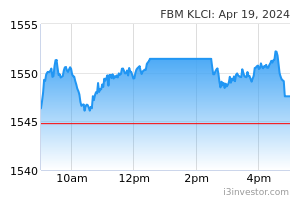FGV to appeal against RSPO suspension

KUALA LUMPUR: FGV Holdings Bhd says it will appeal the Roundtable on Sustainable Palm Oil’s (RSPO’s) decision to suspend the ongoing certification process for 20 of the group’s uncertified units, and the reimposition of an earlier suspension on Kompleks Serting.
It has also outlined its action plans to address the non-compliances highlighted by the RSPO’s complaints panel (CP), which led to the suspension, and has committed to provide quarterly updates to RSPO on the issues raised.
“FGV will officially appeal this decision to the complaints panel and the RSPO in view of FGV’s progress updates and action plans, which are all in the process of being implemented,” said FGV in a statement on its website yesterday.
The suspension came after the CP conducted audits at six FGV complexes: Kompleks Jerangau Baru, Kompleks Selanchar 2B, Kompleks Serting, Kompleks Triang, Kompleks Lanchang Kemudi and Kompleks Nilam Permata. Of the lot, only Kompleks Serting has an RSPO certificate.
FGV said all the non-compliance issues highlighted by the CP were in Triang, Pahang, and Lanchang Kemudi and Nilam Permata in Sabah.
In a letter to FGV dated Jan 13 communicating the suspension, which took effect on the same day, RSPO’s CP chairperson Datuk Henry Barlow said FGV had failed to comply with the RSPO’s rules on issues such as the treatment of labour, after the complaints panel reviewed six audit reports on the matter.
He added that in order to lift the suspensions, FGV has to demonstrate via audits by certification bodies — at its own cost — that it has met the criteria do so by no later than July 2020.
In particular, the panel found that the planter’s foreign workers were not adequately briefed on their future working conditions in FGV, and that FGV continues the practice of signing contracts with these foreign workers in Malaysia, instead of in their respective countries of origin.
It also said despite new policies and practices instituted by FGV after January 2019, the group still failed to ensure that newly hired foreign workers do not pay their recruitment agents unnecessary recruitment fees prior to joining FGV, and that even after October 2019, FGV has yet to fully phase out the use of contractors in Sabah.
The panel also found that FGV failed to provide evidence to support the claim that the planter was monitoring contract workers to ensure that their pay and working conditions meet the requirements of local labour laws.
In addition, it said FGV still employs roughly 7,000 workers in Sabah who have yet to be legalised.
Among its clarifications on the matter, FGV said it no longer hires workers through contractors, and that there are no undocumented foreign workers at its Sabah operations or anywhere else, as the group had completed the registration of all previously undocumented workers in Sabah by end-2019.
“Now, FGV is proceeding with the administrative processes required by the authorities through the state’s regularisation exercise to obtain passports and work permits for all these formerly undocumented workers.
“As has been communicated previously, FGV expects this entire process to be completed by the end of June 2020. Having said that, FGV takes note of the CP’s directive and shall comply with the same,” FGV said.
The directive it refers to include the development of a mechanism to ensure that existing undocumented workers’ legalisation processes are monitored, with preventive measures put in place against employing new undocumented or illegal workers.
FGV shares fell 2.61% or four sen to close at RM1.49 yesterday, giving it a market capitalisation of RM5.44 billion.
( 24,36 % )
( 39,38 % )
( 36,26 % )


